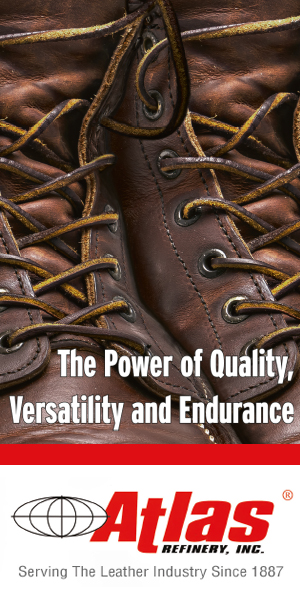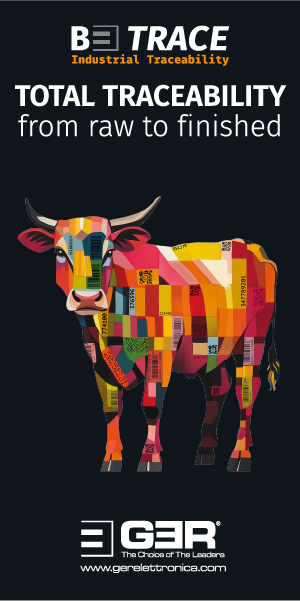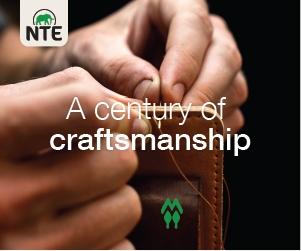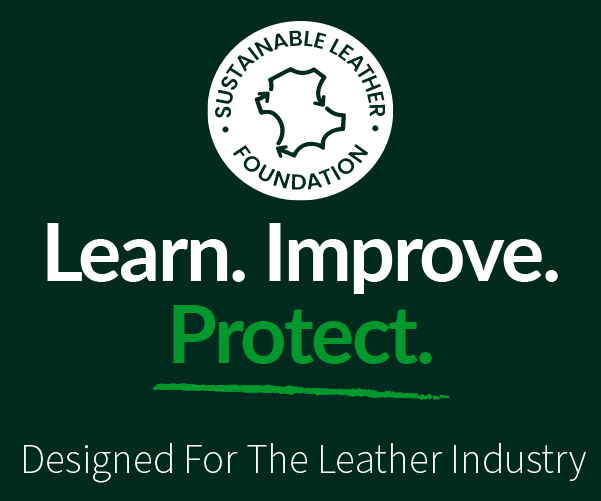Claudia Sequi: Consumers deserve the truth

Florence-based handbag manufacturer Claudia Sequi took over the presidency of Italian leathergoods manufacturers’ association Assopellettieri in July 2023. She is the first woman to hold this office.
In your opinion, what is the significance of Assopellettieri now having a woman as president?
It is a great honour to be the first woman president of the association, because our association is nearly 60 years old and this is the first time that it has had a woman as president. Although, of course I am very proud of this, I hope that I have been chosen not simply because I am a woman. I hope I have been chosen for my experience and for the fact that I have been in this industry now for 40 years. I remember coming to the Mipel exhibition when I was a teenager, perhaps as young as 14 or 15. I used to come with my parents, who founded Claudia Firenze, the company I now run. I used to come to the exhibition to work with them, to help them with customers from other countries. So it has been 40 years. I think I have enough experience to make an interesting contribution. I am happy that a woman has been chosen, though, and I have to say that all my male colleagues have been very supportive so far.
You have said a number of times that small and medium enterprises will be a particular focus for you as president. What is your assessment of the situation at the moment of Assopellettieri member companies in general, and of the smaller member companies in particular?
Our association includes big brands that have the resources, the skills, the ability to face whatever comes their way. They are strong, they are powerful and they are rich, so perhaps they do not need too much support from the association. Then we have a second sort of member, companies that are important manufacturing partners of the big leathergoods brands, and these companies do need the help of the association. Then there is a third type of member company, and I am part of this, which is smaller companies with their own brands. All of us are part of the same system, but often it is the smaller companies that train new-generation workers who, once they are trained, may well go and work for one of the big brands. That is why the heritage, the skills and the know-how that the smaller companies have must be protected. All of this is very precious; we have to protect it all, the same as we have to protect ‘Made In Italy’. If people all over the world believe the best handbags are produced in Italy, we have to make sure we protect the reasons they have for thinking that. Our small artisans, our larger producers and our big brands are all part of the same world and we have to protect it as a whole.
You have expressed interest in setting up a new school or training centre in Tuscany to bring new talent into the leather-goods manufacturing industry. Why is this necessary?
There are schools in Tuscany already, but this idea comes from the fact that we are suffering from a lack of workers with technical skills. As an association, we have to try to meet the needs of all of our companies, and they are fighting each other at the moment to attract the human resources that they need. In the next ten years, a lot more workers are going to leave, some to retire, some to return to their home countries. We have to get ready for this and start preparing young people to enter the world of work in the leathergoods industry. It starts with recruiting young people, explaining to them what it is we do and how we do it, help them to become fascinated by our world and convincing them that this can be a very rewarding career. We have to change the way we talk about our companies. We are not talking about attracting only stylists, people who work with computer assisted design software or managers, although we need these people too, especially in our big companies. We are looking for hands-on technicians too. We, Assopellettieri, have a duty to help member companies create this new labour force.
How will the new school work?
Our idea is to create a system, a structured project. We are working with a very experienced person, Massimiliano Guerrini, who spent nine years at the head of a technical school in Florence called MITA (the Made In Tuscany Academy). He will help us establish a structure that will allow us to establish a new school in Tuscany and take the same structure to other parts of Italy where handbags are produced. We want to support our member companies all over the country by creating a format that we can repeat in all the areas where handbags are produced.
How easy will it be to find young people who want to do this work?
I think we need to work carefully with these young people. We probably need to start talking to them when they are in high school, and possibly even before that, and to their parents. Families are important. Of course everybody has big aspirations for their children, but we cannot all be lawyers or medical professionals. There is a very interesting and professionally rewarding career in this industry and that’s what I think we need to tell them, that this is what it means to work in leathergoods manufacturing. It can be a really fascinating career and way of life. We need to pass our passion for doing this onto them, to share with them what it means to be able to create something so beautiful with your own hands and using your own creativity. For instance, I have arranged for the people that work in my factory to come to Milan to see the results of what they have been working on for months displayed on the shelves at Mipel, and see the reaction to what they have done from industry professionals at the exhibition.
‘Made In Italy’ is a very strong message and we know this is true because manufacturers in other parts of the world often try to present their products, falsely, as having a connection to ‘Made In Italy’. How can Italy and Italian manufacturers of leather products protect the prestige you have worked hard to establish?
It’s our duty to protect ‘Made In Italy’. We would be mad if we did not try to do this, to protect our heritage. It’s impossible for a single company or a single sector to achieve this, though, and it’s important for our government and our entire nation to help. For us, the manufacturers, part of our responsibility is to make sure we do everything correctly and ethically. This includes the way we make the bags, the protection we give our workers, and the ethical business practices inside our companies. ‘Made In Italy’ is a guarantee of all these things. It is a guarantee of 360-degree sustainability. Our companies are not just brands; there is history, heritage and compliance with all our laws behind them. This is in our interest anyway; we don’t want there to be shortcuts for making products like ours.
In a similar way, manufacturers who use high-quality leather also face competition from imitators. What can companies across the leather industry do to protect leather’s identity? Why do some big brands seem to believe it is less important to defend the reputation of leather than it is to defend ‘Made In Italy’ or, perhaps, ‘Made In France’?
There is a lot of false information around. I think the word ‘vegan’, for example, is really misleading and that there is a huge misunderstanding around it. Leather is sustainable and is part of the circular economy. Of course it is. It is completely sustainable because you use a by-product of the food industry. We are not creating anything new to make our handbags; we are using something that would have been discarded otherwise. The fact that we use this material means it has a second life thanks to the tanning process when it becomes leather and a third life when we use the leather to make our handbags. We are a sustainable industry and what happens when we use leather is that we are using sustainable material. I will tell you something else. When we use leather to make handbags, we also have some leftover material, such as small pieces of cutting waste that we cannot use. We are giving this material a fourth life by passing it to specialised companies who reuse it to make new materials. This is the focus of an important project that Assopellettieri is running at the moment. Any message that suggests leather is anything other than completely sustainable is misleading. Consumers deserve to hear the truth.
Assopellettieri president, Claudia Sequi.
Credit: Assopellettieri































